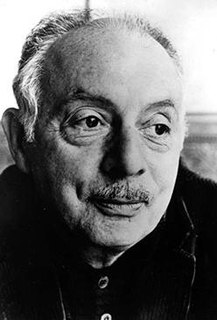A Quote by Stanley Kunitz
Poetry is language surprised in the act of changing into meaning.
Related Quotes
Contemporary poetry ... tries to transform the sign back into meaning:
its ideal, ultimately, would be to reach not the meaning of words, but the
meaning of things themselves. This is why it clouds the language, increases
as much as it can the abstractness of the concept and the arbitrariness
of the sign and stretches to the limit the link between signifier and signified.
We believe we can also show that words do not have exactly the same psychic "weight" depending on whether they belong to the language of reverie or to the language of daylight life-to rested language or language under surveillance-to the language of natural poetry or to the language hammered out by authoritarian prosodies.
Poetry cannot be translated; and, therefore, it is the poets that preserve the languages; for we would not be at the trouble to learn a language if we could have all that is written in it just as well in a translation. But as the beauties of poetry cannot be preserved in any language except that in which it was originally written, we learn the language.




































